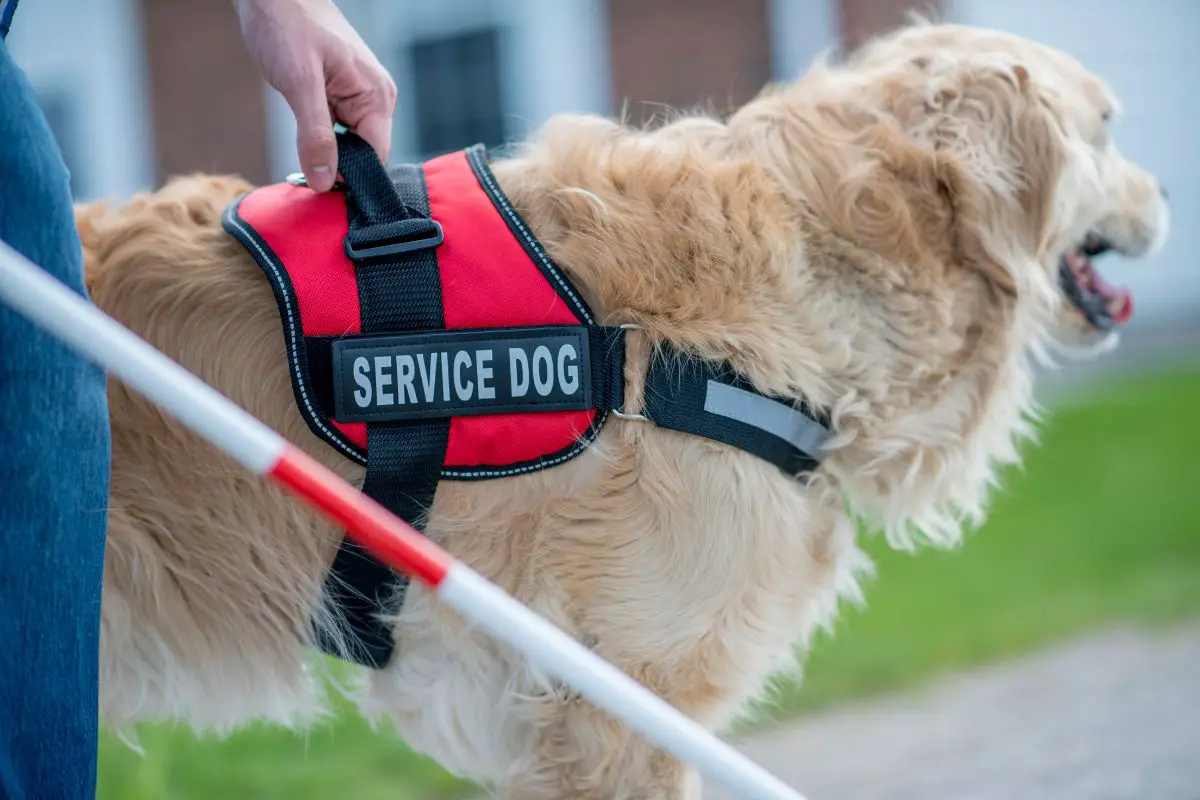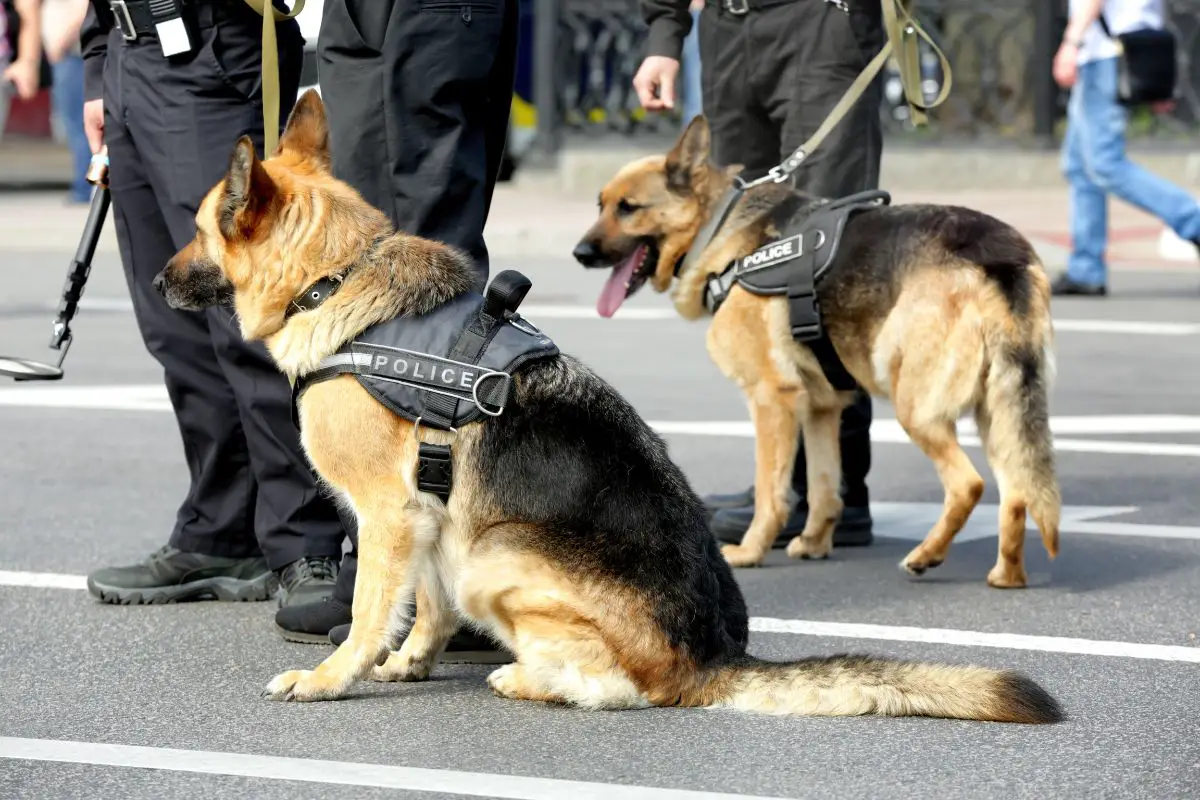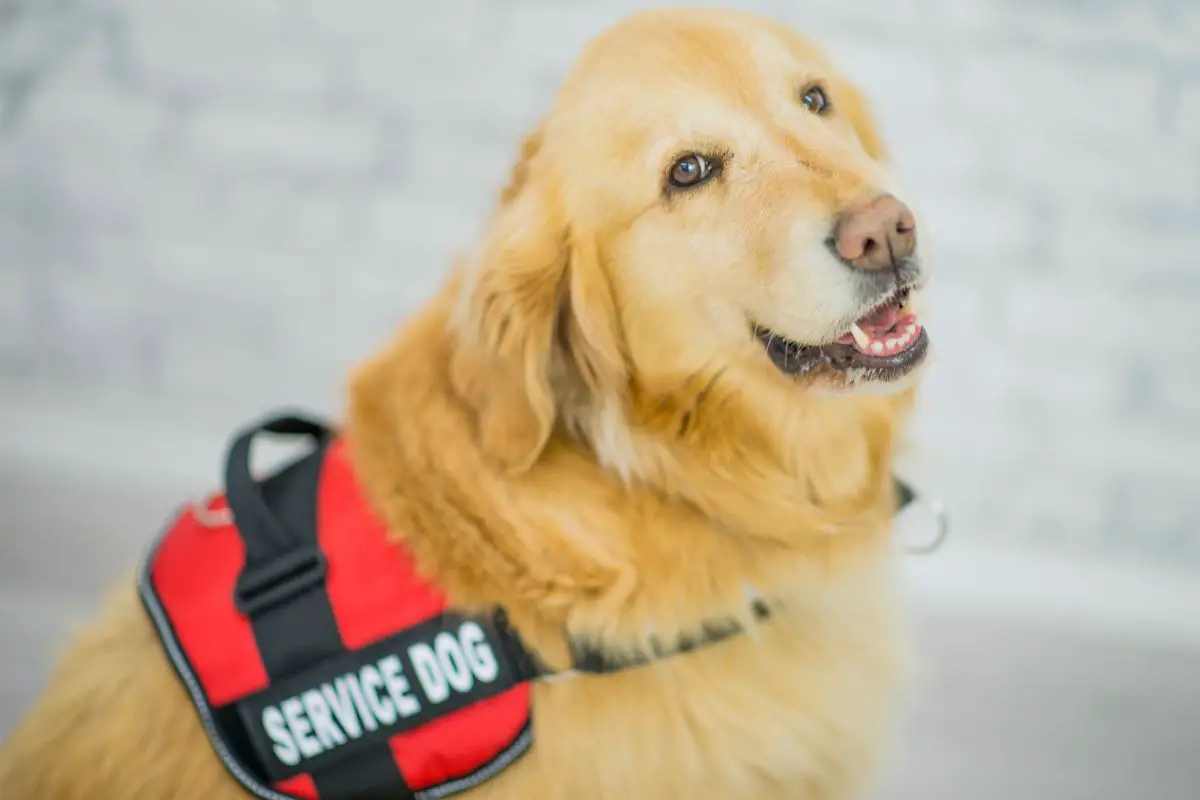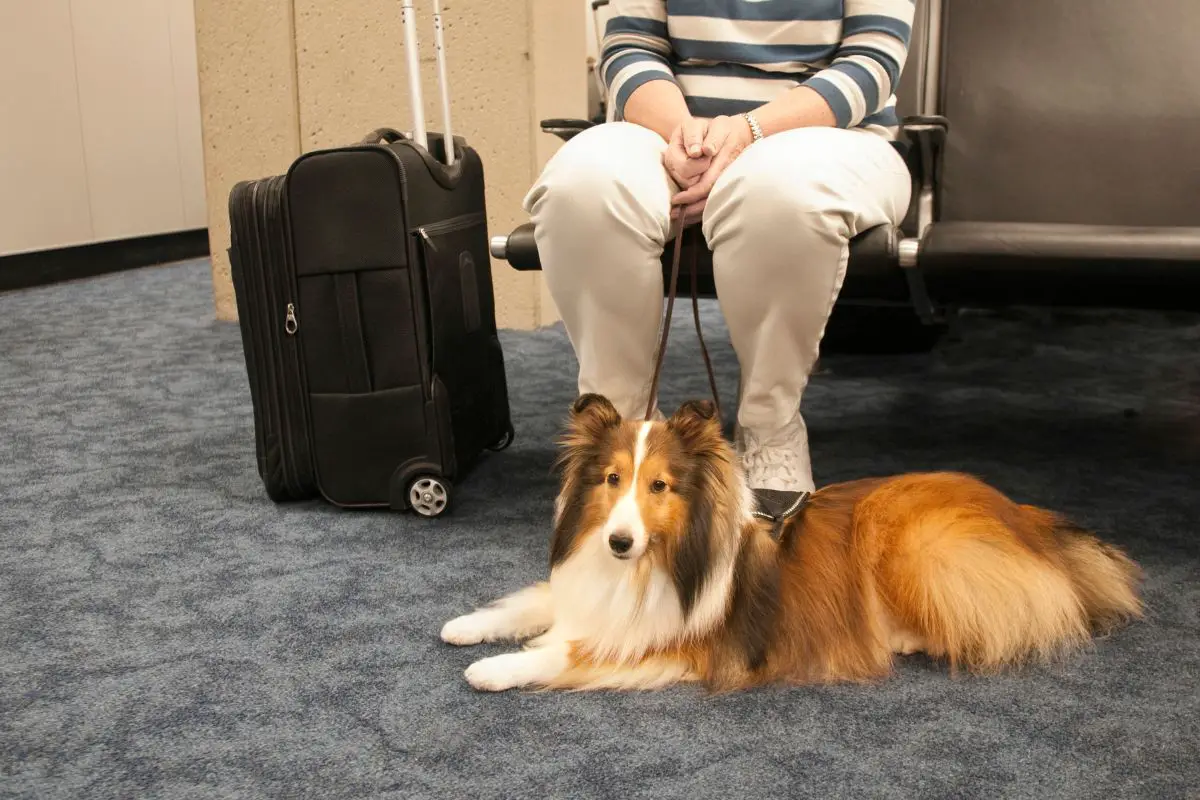Are service animals allowed in restaurants? This question has been asked before, but the answer seems to change from time to time.
Service animals are trained to assist people with disabilities. They include guide dogs, hearing aids, and mobility devices.

These animals are specially trained to perform tasks such as guiding their owners through crowded areas or alerting them to dangerous situations.
Restaurants are required to allow service animals into establishments under the Americans with Disabilities Act (ADA). The ADA was passed in 1990 to ensure equal access to businesses for people with disabilities.
It requires that all public places be accessible to people with disabilities. To comply with this law, restaurants must provide a designated area where people with disabilities can use their service animals.
What Are The Laws For Service Dogs?
Some states have laws that specifically address whether service animals are allowed in restaurants. For example, California’s state code says: “A person shall not require another person to permit him or her to enter or remain on-premises because of disability.”
The ADA also prohibits discrimination against people who use service animals. If you believe your restaurant is discriminating against someone by refusing to serve them food or drink, contact the U.S. Department of Justice.
The ADA does not specify what type of dog qualifies as a service animal. However, most experts agree that a service dog should be able to do one or more of the following things:
- Guide its owner through a crowd
- Alert its owner to an emergency situation
- Provide emotional support
- Help control seizures
- Assist with balance problems
- Protect its owner from injury
If you’re unsure if your pet meets these qualifications, ask your veterinarian. Your vet will know which types of pets qualify as service animals.
Most states have specific rules about what kind of assistance animals are allowed in restaurants, including cats and other household pets. Check with your local health department to find out what kinds of animals are permitted in restaurants in your state.
How Do I Get A Service Dog?
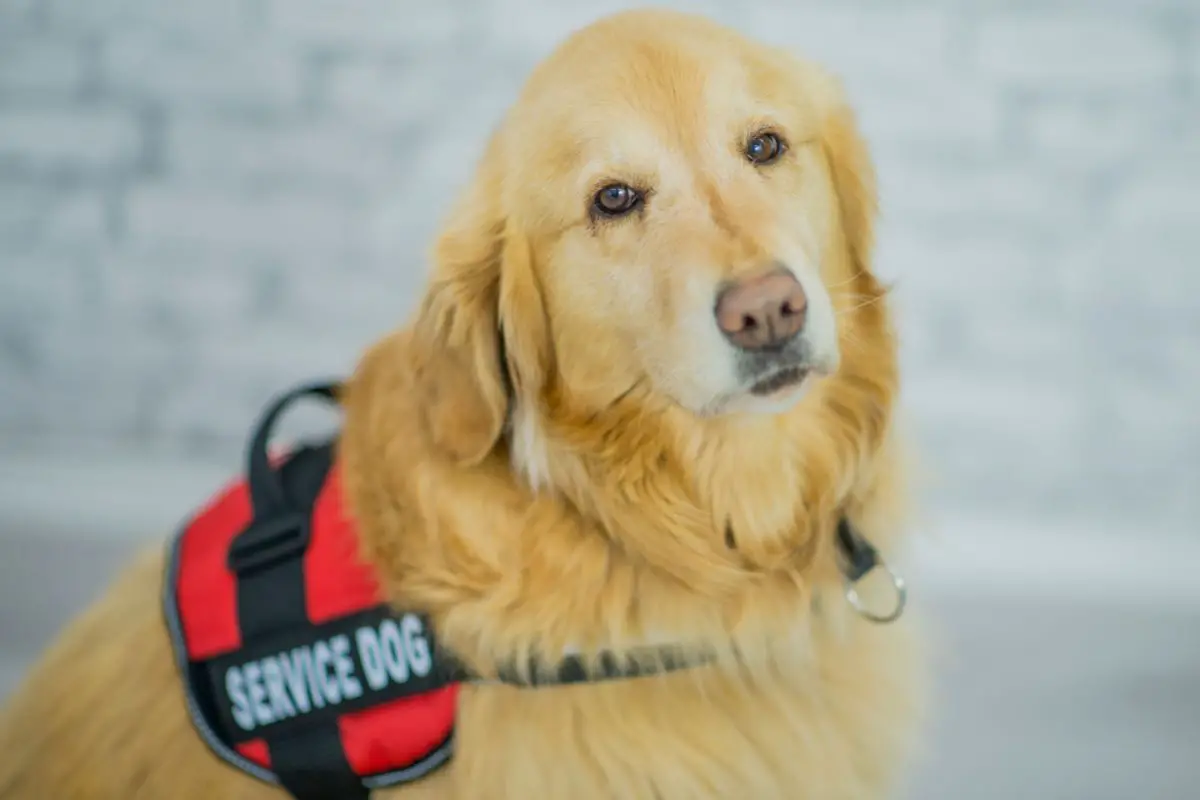
Getting a service dog may seem like a daunting task, but it doesn’t have to be difficult. There are many organizations that help people get service dogs.
Some of the best known include Guide Dogs for the Blind, Hearing Dogs Inc., Assistance Dogs International, and Seeing Eye Dogs.
Getting a service dog usually involves training. You’ll need to meet with a trainer to learn how to train your dog. Once he or she learns the commands you want your dog to respond to, they’ll teach your dog those commands.
Then, you’ll practice teaching your dog new commands until your dog responds appropriately when you give the command.
You’ll also need to work closely with your doctor. Your doctor will determine if your dog is qualified to become a service dog.
He or she might recommend additional tests to make sure your dog has no medical conditions that would disqualify it.
Your doctor will also evaluate your home environment to see if there are any hazards that could injure your dog. This includes determining if there are stairs, doors, appliances, or furniture that could cause harm to your dog.
Your doctor will also check to see if your house is safe for your dog.
Once your doctor gives his approval, you can apply for a service dog grant from the federal government.
The grants are available to anyone who needs a service dog to perform tasks such as guiding their blind parent, alerting them to dangerous situations, helping them avoid falls, providing emotional support, controlling seizures, assisting with balance issues, protecting them from injury, or performing similar functions.
Once you receive your grant, you can choose where you’d like to get your dog trained. To ensure that your dog gets the right amount of attention, you’ll need to enroll him or her in a reputable school.
Many schools offer online courses so that you don’t have to travel far.
The American Kennel Club offers a guide on getting a service dog. It’s designed to help you understand the process and answer questions you might have before you begin.
Must Restaurants Allow You To Bring Service Dogs?
Under the ADA, places of public accommodation—including restaurants—are prohibited from discriminating against individuals based on their disabilities.
Restaurants must allow individuals with disabilities access to all parts of their businesses, including restrooms, dining rooms, kitchens, and parking lots.
Service dogs are considered disabled under the ADA and therefore must be admitted to restaurants at no cost.
A restaurant owner may charge a fee for damages caused by the service dog, however, as long as the fee is equivalent to what a non-service dog customer would pay for similar damages.
Service dogs are not allowed inside any public space unless they are trained to assist someone with a disability. However, there are exceptions to this rule.
For instance, if a restaurant owner allows a service dog inside his or her establishment, then he or she is not liable for damages caused by the service dog.
Furthermore, if a customer brings a service dog into a restaurant, the restaurant is not required to provide food or special accommodations for the animal.
Restaurants may also choose to ban service dogs if the animal behaves threateningly toward customers or staff members.
Finally, if a service dog misbehaves, the restaurant owner may ask the customer to leave or move to another area of the restaurant.
What Are The Benefits Of Having A Service Dog?
Having a service dog means having an extra set of eyes and ears at all times. They can alert you to dangers around you and keep you safe from falling down stairs or tripping over obstacles.
Service dogs can also provide companionship to people who live alone or suffer from loneliness. People who use service dogs often report feeling less anxious and more confident after receiving one.
Having a service dog can also improve the quality of life for children with autism. Children with autism tend to have difficulty interacting socially.
For instance, they may not know what to say or do when someone greets them. With a service dog, these children can interact with others and enjoy social activities.
If you’re considering getting a service dog, talk to your doctor first. He or she will help you decide whether getting a service dog is right for you.
If you think you might qualify, ask your doctor about the costs involved.
If you’re interested in learning more about getting a service dog, visit the website of the National Federation of the Blind. There, you can find information about the benefits of having a service dog.
Final Thoughts
There’s nothing wrong with asking questions before deciding whether to get a service dog. It’s important to make sure that it’s right for you.
But once you’ve decided to get a service dog, don’t let anyone discourage you. You’ll soon realize how much better off you are with a service dog than without one!
- Are Antlers Safe For Dogs? - January 14, 2024
- Can Dogs Eat Honey Nut Cheerios? - December 23, 2023
- Natural Deworming Remedies for Your Dog - December 18, 2023


